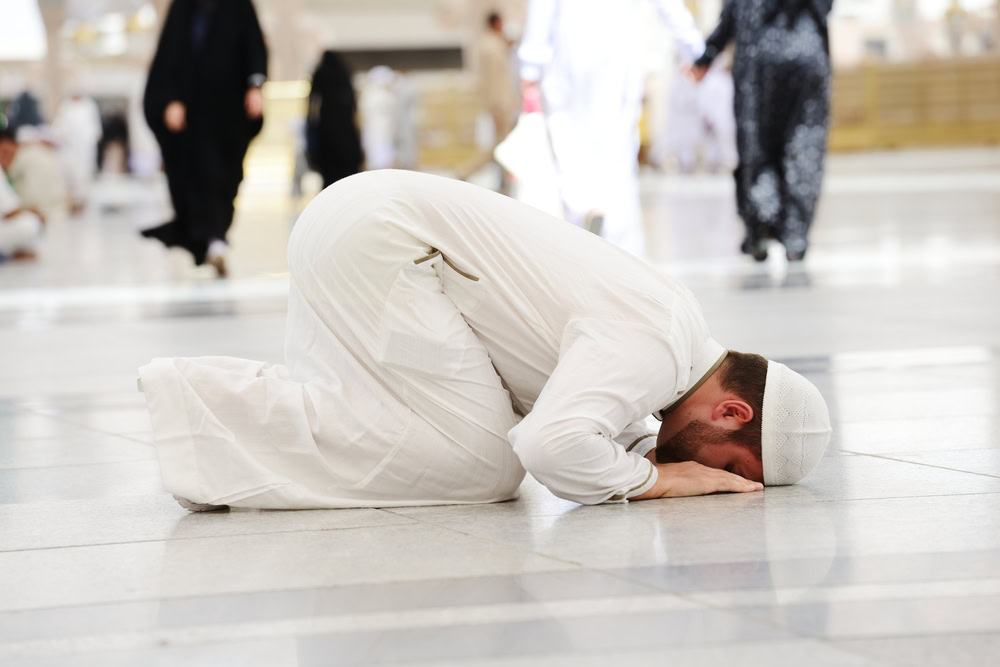How Should I Make Up a Forgotten Prostration?
Hanafi Fiqh
Answered by Ustadh Sufyan Qufi
Question
I was praying dhuhr prayer and I was on my last cycle. I had just done a prostration and started doing the tashahhud, when I felt as though I had only made one prostration instead of two. I stopped the Tashahud and said “Rabbir-ghfir li” twice and I went back into sujud and then afterward I did the prostrations of forgetfulness. Was my prayer valid?
Answer
In the name of Allah, Most Compassionate, Most Merciful,
I pray this finds you in the best of states.
Yes, your prayer was valid and what you did was perfectly fine. [Ibn Abidin, Radd al-Muhtar]
How to Make Up a Forgotten Prostration
The prostration is an action of the prayer that is repeated in one cycle (rak‘a) of the prayer. It is necessary (wajib) for us to respect the order between the prostrations and the rest of the actions of the prayer. When we remember that we have forgotten a prostration from a previous cycle, we have to make it up as soon as we remember it, even if it is after the exiting salam of the prayer. [Ibid.]
If you remember the forgotten prostration during the prayer, in the bowing, or while sitting for the Tashahud, you have to prostrate to make up the missed prostration but you don’t have to repeat the Tashahud or the bowing during which you have remembered the forgotten prostration. [Ibid.]
Nonetheless, it is recommended (mustahab) to repeat this bowing or this Tashahud after making up the forgotten prostration. [Ibid.]
After that, you will have to perform the prostrations of forgetfulness because you have failed to respect the order between the prostrations and the rest of the actions of the prayer, which is necessary (wajib). [Ibid.]
Misgivings
Please don’t allow yourself to fall prey to misgivings (waswas).
Please see: How Should I Deal with Waswasa?
And Allah knows best.
Wassalam
[Ustadh] Sufyan Qufi
Checked and Approved by Shaykh Abdul-Rahim Reasat
Ustadh Sufyan Qufi is an advanced seeker of knowledge, originally from Algeria, who grew up in France. He began searching for ways to learn Islam reliably and was disappointed at the answers he found locally.
Then he connected with various traditional teachers and gradually connected with SeekersGuidance. He embarked on his journey of learning through the various teachers at SeekersGuidance, including his mentor Shaykh Faraz Rabbani.
He studied numerous texts in Islamic Law, Theology, Hadith, and other areas with Shaykh Faraz Rabbani and other teachers, including Shaykh Abdurrahman al-Sha‘ar, Shaykh Ali Hani, and others.
He is an active instructor at SeekersGuidance and answers questions through the SeekersGuidance Answers Service.
